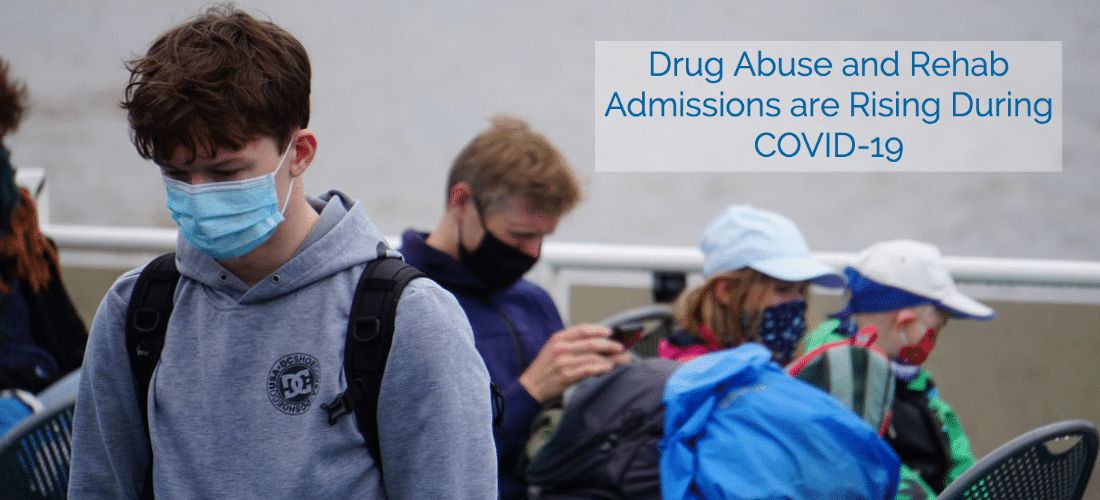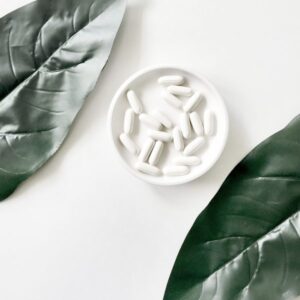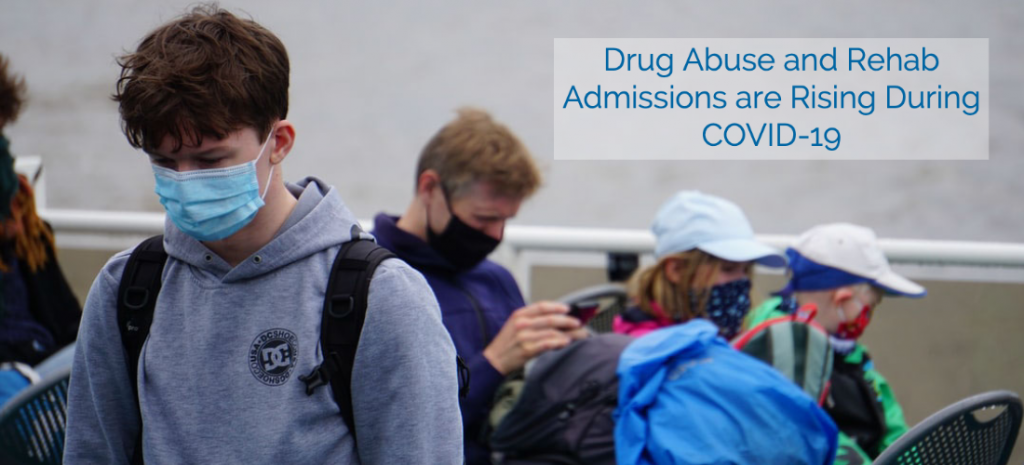Drug Abuse and Rehab Admissions Rising During COVID-19


There is no question that drug abuse is on the rise and people are needing to go to rehab now more than ever because of COVID-19. Things like a loved one falling ill. Kids unexpectedly out of school with no childcare. Coping with physical distancing. Daily routines interrupted. Life milestones canceled. Adjusting to working from home, or worse, not being able to work at all. These are the crises we are all facing as the COVID-19 pandemic continues. These factors are causing a historical increase in drug abuse in America.We must brace for how these awful circumstances will come together to impact the drug addiction crisis in America. We must recognize the scope of the problem and start moving urgently to prevent future tragedies. To understand how COVID-19 may compound the drug addiction crisis in America, we must examine healthcare, economic, social factors, and drug abuse treatment.
Isolation related to COVID-19 tends to increase substance misuse, addiction, and relapse
The healthcare system is being strained, and those with drug addictions face dire consequences. COVID-19 is taxing all areas of our healthcare system, including drug abuse treatment in drug treatment centers. Necessary coronavirus containment measures, like physical distancing and closures of public spaces, are making it harder for people with substance abuse disorders to seek help, keep up their treatment regimen, or access social supports. Groups such as AA and NA have been shown to increase members’ ability to cope with risky social contexts and negative emotions, reduce impulsivity, and enhance well-being, among other positive effects. While AA and NA meetings are often coupled with individual therapy, medications, and other interventions, many people do rely solely on groups. With in-person gatherings canceled, millions of Americans in recovery are now without a crucial lifeline.

On a positive note, more and more virtual meeting options are emerging as the coronavirus outbreak wears on. While this is an exciting test of Zoom and Telehealth capabilities, we must be aware that the switch to virtual groups was not made voluntarily, and many in recovery may be struggling.
During COVID- 19 most drug abuse treatment centers clinical staff are working from home. While this is a safety measure taken by drug rehab clinical staff members it is having a negative effect on the recovery effectiveness of patients in their drug treatment centers. Beginnings Treatment Centers is one of the few exceptions to the rule that has clinical staff actually working on-site in their drug rehabs. While treating clients in person Beginnings Treatment Centers is taking the CDC precautions necessary to protect the health and safety of their staff and clients.
One-on-One On-Site Counseling is Effective
During COVID- 19 most drug abuse treatment centers clinical staff are working from home. While this is a safety measure taken by drug rehab clinical staff members it is having a negative effect in the recovery effectiveness of patients in their drug treatment centers. Beginnings Treatment Centers is one of the few exceptions to the rule that has clinical staff actually working on-site in their drug rehabs. While treating clients in person Beginnings Treatment Centers is taking the CDC precautions necessary to protect the health and safety of their staff and clients.
While Beginnings Treatment Centers and other substance abuse treatment centers know the effectiveness of providing quality clinical care in person no drug rehab has experience in providing clinical care for substance abuse treatment via telemedicine. To get the best care possible during the COVID 19 pandemic before selecting any substance abuse treatment center you must ask any center you are considering “Is your clinical staff working on-site?” If there answer is no seek out another treatment center. Keep in mind that a person with drug addiction is far more likely to die from inadequate drug treatment then anything else. Please get the best treatment possible.
Quality Clinical Care is Critical for Long-Term Recovery
While Beginnings Treatment Centers and other substance abuse treatment centers know the effectiveness of providing quality clinical care in person no drug rehab has experience in providing clinical care for substance abuse treatment via telemedicine. To get the best care possible during the COVID 19 pandemic before selecting any substance abuse treatment center you must ask any center you are considering “Is your clinical staff working on-site?” If there answer is no seek out another treatment center. Keep in mind that a person with drug addiction is far more likely to die from inadequate drug treatment then anything else. Please get the best treatment possible.

It’s also important to remember that, amid all of this, individuals with addiction could face greater risks related to COVID-19, particularly those who smoke tobacco or marijuana, vape, or use opioids or methamphetamines, because of the negative effects these substances have on respiratory and pulmonary systems. COVID-19 is posing an immediate and longer-term threat to the health of the country, but especially to those with addiction. Not only from the virus itself, but also from the consequences of physical distancing on access to necessary treatment and recovery resources. We should anticipate potential relapses and dangerously reduced access to addiction treatment for those actively using who are ready to seek care.

Economic indicators point to increased substance use. The economic impact of COVID-19 is already proving to be disastrous. While many employers have been able to go remote, this is simply not possible in other industries. Servers, workers in the travel industry, and many other occupations are simply out of work. Hourly workers and those without sick leave are already in crisis. For others, the tanking stock market is resulting in layoffs and depleting retirement plans. The U.S. economy is changing. That is a signal of concern for trends in addiction and mental health overall. Deaths from drugs, alcohol and suicide, often called deaths of despair by the media, are highest in regions with economic distress. Studies show that drug use increases in recession times because unemployment increases psychological distress. Remember, not only is unemployment already rising, but the mechanisms typically available for coping with psychological distress are less readily available, as community support groups are cancelled, and healthcare providers are diverted to treat COVID-19 patients.
The relationship between unemployment and drug use
While U.S. unemployment recently reached a half-century low, a drastic change is happening due to COVID-19, with record numbers of Americans filing for unemployment. Treasury Secretary Steven Mnuchin warned that COVID-19 could drive up unemployment to 20% or more. We know unemployment and recessions are associated with higher drug and alcohol misuse, which have a multiplier effect on consequences to productivity, the healthcare and criminal justice systems, and families.
Another concerning factor is the impact on the food services industry specifically. The hospitality industry already sees higher rates of addiction. With COVID-19, that is likely going to get worse. The latest SAMSHA report examining substance use and addiction trends by industry showed that individuals in the accommodations and food services industry had both the highest illegal drug use in the past month and the highest rate of substance use disorder in the past year. Thousands of restaurant and hotel workers are out of work or being laid off due to closures or coronavirus containment restrictions. While some of these workers will be able to return to work when the immediate threat of the virus passes, others will not have a business to return to. Connecting these workers to psychological support to deal with the immediate distress of being out of work and to deal with the potential long-term consequences of this crisis is critical to prevent a surge in drug use and related deaths.
Social factors pose still more risks. Physical distancing is a new phenomenon for many, and even those without mental illness are struggling to adapt to this new way of life. While an abundance of resources are peppering the internet with tips on how to cope, some people may need professional medical help. But these undeniable social triggers and lack of access to treatment are not the only concern here.
Drug Abuse During COVID was almost predictable

Kids across the U.S. are dealing with an unprecedented change in routine. That is dangerous. The COVID-19 response has resulted in school cancellations for nearly 30 million children. For those that rely on school lunches, this means food insecurity, for others, this may mean being quarantined with a potential abuser, while others are missing milestone events like graduations and proms, and instead of facing boredom or perpetual screen use. Decades of research show that there are both risk and protective factors for drug use. For example, lack of parental supervision, drug availability, and poverty are risk factors, while parental monitoring, academic competence, and strong neighborhood attachment are protective factors. It is extremely concerning that the COVID-19 response could tip the scale, increasing risk factors for so many of America’s youth. What is more, families were not anticipating the need to monitor school-age children around the clock, and the increased free time may increase drug experimentation. The impacts of the pandemic will likely increase childhood trauma, which increases addiction risk. Childhood trauma is linked to future substance use disorders and other negative mental health effects. COVID-19 may increase exposure to potentially traumatic childhood experiences, like harassment, abuse, loss, disasters, and even medical trauma, which can be caused when children or their families experience single or multiple medical events.
Drug and Alcohol Addiction are not Caused by a Lack of Willpower
Addiction is a chronic disease that can be prevented and treated. It is critical that we do not forget about the nation’s addiction crisis in our response to COVID-19, and instead build a comprehensive approach that will prevent the spread of addiction and ensure access to treatment for all those in need. At a systems level, we must work to ensure every American has access to treatment for substance use disorders, and that psychological support is widely available not just in times of crisis, but always.
At a personal level, we must be vigilant to the struggles of those around us—mental, physical, emotional, and economic. Everyone is struggling in their own way and we may be physically distant from each other, but we certainly are not struggling alone. Check-in on your friends, family, co-workers, and neighbors. We must work even harder to build community in times of COVID-19 containment.
If you or someone you care about is suffering from drug addiction please call 888 800-9961 or visit www.BeginningsTreatment.com for a confidential no-obligation consultation.


